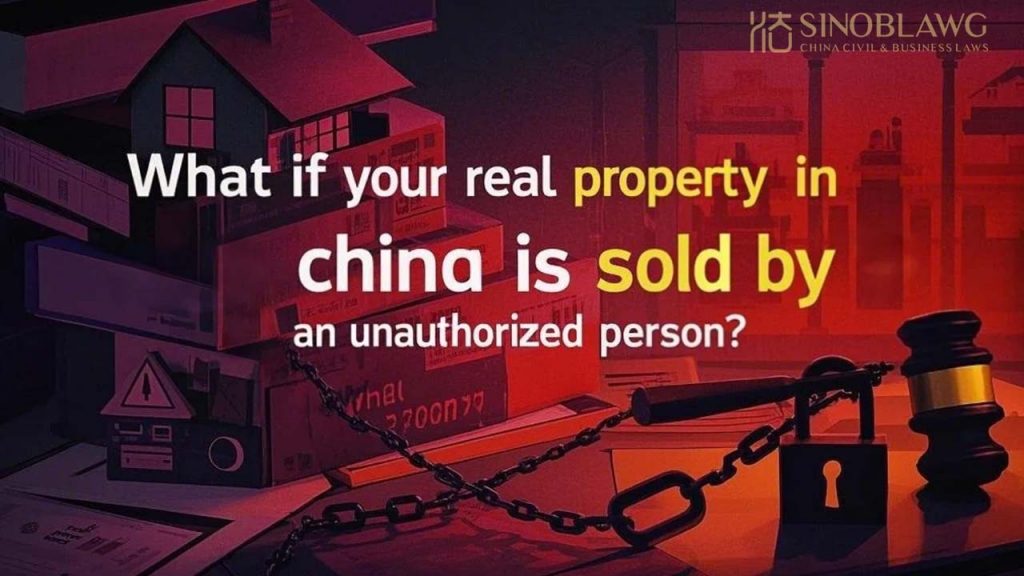My clients, two foreigners, operate a successful restaurant in Shanghai for a few years. They invest in the business but the restaurant was registered in two Chinese persons’ names in order to save time for starting the business. Of course, there is a contract between the two foreigners and the Chinese nominee shareholders. Recently, the two clients are tired of running the catering business, too tiresome, so they decide to sell the business. A Chinese businesswoman turned up and signed a share transfer agreement directly with the two clients without involving the two Chinese nominee shareholders. I am not aware of their sale until they came to me for advice on a dispute with this buyer who had paid half of the price but now wished to quit the deal and take back her money.
Can she take back the money? Is the contract signed between this businesswoman and my clients valid?
Legally speaking, the two foreigners, while the de facto controller of the business investing and managing the restaurant, are not the legal owners of the equity interests in the restaurant, a limited liability company under China Company Law. As a common sense, you cannot sell a thing you don’t own. Otherwise, it is an unentitled disposition. Thus the validity of the share sale contract is now called into question.
Let us examine the rules in Chinese laws regarding the legal effects of unentitled disposition.
I. The Rules in Current Laws
(1) The General Provisions of Civil Code in China, effective as from January 1, 1987, does not include any provision in regard of unentitled disposition of properties. In the judicial interpretation of these General Provisions, China Supreme Court shed some lights on the issue in Article 89 of the mentioned interpretation: joint co-owners of property shall jointly enjoy the rights and assume the obligations in the property; during the life of co-ownership, disposition of the property by some (but not all) co-owners shall be void in general; a bona fide third party who pay for the property in such situation shall be availed of legal protection.
(2) Article 51 of China Contract Law (enacted in 1999): where a piece of property belonging to another person was disposed of by a person without the power to do so, such contract is nevertheless valid provided however that the person with the power to its disposal has ratified the contract, or if the person lacking the power to dispose of it when the contract was concluded has subsequently acquired such power.
(3) Article 106 of China Property Law (enacted in 2007): where a piece of real or personal property is transferred to a transferee by a person having no such power, the property owner shall have the right to chase it back; unless otherwise provided by laws, in the following circumstances, the transferee shall nevertheless acquire the ownership in the real or personal property:
(a) transferee is of good faith at the time of transfer of the property;
(b) the transfer price is reasonable;
(c) the real or personal property in question that ought to be registered according to laws has been registered, and those not subject to registration have been delivered to the transferee;
where the transferee acquires the ownership in such real or personal property in accordance with preceding paragraph, previous owner shall have the right to claim damages from the unauthorized disposer.
(4) Article 3 of China Supreme Court interpretations on application of laws in sale of goods contracts (issued in 2012): where a party to the sale contract claims that the contract should be avoided for the reason that at the time of conclusion of the contract the seller does have ownership in the goods or has no power to dispose of the goods, the people’s courts shall not support such claims;
In case that the seller fails to have the ownership of the goods transferred due to lack of ownership or power to dispose of and thus the buyer requests the seller to assume default liability or request to rescind the contract and claim damages, the people’s courts shall support such requests.
II. Effects of Judicial Change on Treatment of Unentitled Dispsoal Contract Validity
China Contract Law was initially enacted in 1999, a time China’s market economy is just fledging at its infant stage. With China’s economy developing with strong market orientation, the idea of encouraging market transactions is bought by legislature and particularly judiciary body. So it is widely accepted in legal arena that contracts should not be avoided easily and instead contracts should be held valid except in strictly defined circumstances.
China Supreme Courts have steered the trend in judicial system in its past judicial interpretations in respect of China Contract Law. So far the change into affirming the validity of contracts under which unentitled disposal takes place is the most significant change, causing far-reaching effects in many areas of law.
(1) This judicial stance renders Chinese contract law practice more in line with international commercial contract reality, as reflected in UNIDROIT’s 2010 version of Principles International Commercial Contracts which provides “the mere fact that at the time of conclusion of the contract a party is not entitled to dispose of the assets to which the contract relates does not affect the validity of the contract”.
(2) In dispute resolution involving unauthorized sale or disposal of assets, the grieved party to the contract, the buyer, cannot now ask courts to avoid the sale contract based on lack by seller of right to dispose of the subject matter in which situation buyer can claim to take back money paid for the goods and claim damages suffered as a result of the contract being invalidated. Instead, the buyer can now only pursue the breach liability of the seller for not being able to transfer the ownership of the goods/properties.
(3) This change may greatly affect the security/collateral transactions. As a general thumb rule, a security transaction made in favor of a party under a contract shall be void if the said contract is avoided. Now with this interpretation, security transaction will be also held valid that would otherwise be invalid in the case of the principal contract involving unentitled disposal.
III. Expanded Application of this Pro-valid Rule
This 2012 supreme court interpretation also provides in its Article 45 to the effect that transfer of account receivables and shareholder rights shall also be governed by reference to rules relating to sale of goods. By this clause, it is reasonable for courts to apply this rule regarding unentitled disposal to transfer of account receivables and shareholder rights.
This again will have enormous impact on factoring business and share transfers.








Interesting case! I think you gave a clear explanation. I agree that the interpretation of the supreme court could have enourmous impact.